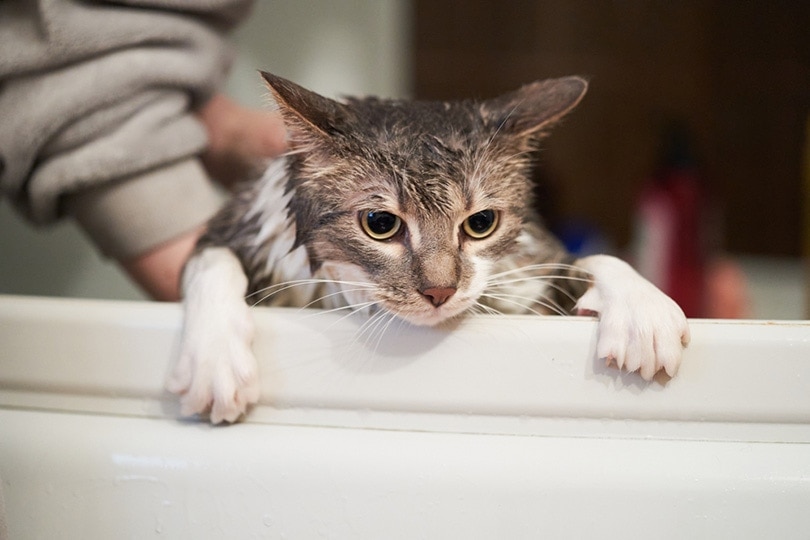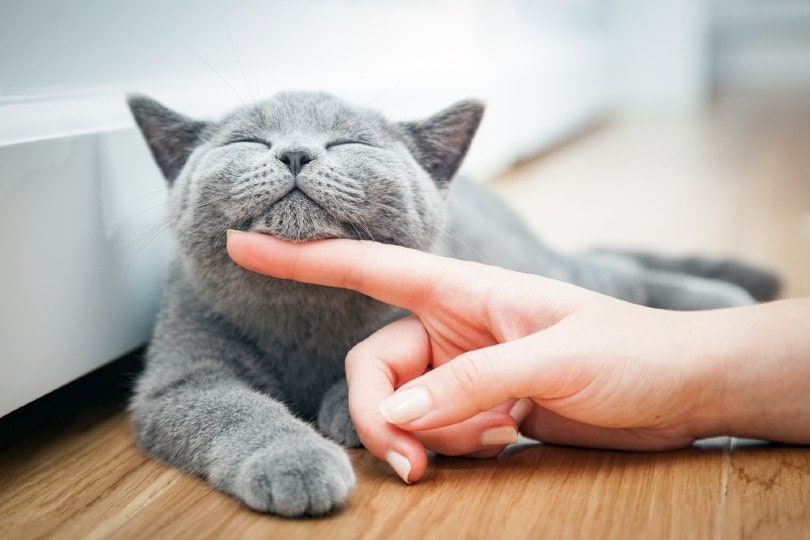How to Stop a Male Cat From Mounting
Updated on
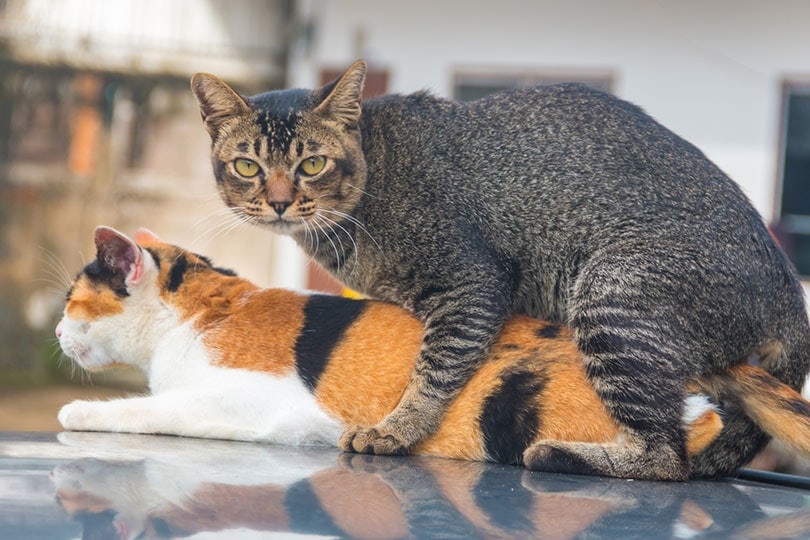
While it’s expected that unaltered tomcats will exhibit mounting behavior, many owners are shocked to see this behavior in their neutered male cats. It’s not uncommon for neutered males to mount or hump other cats or even inanimate objects, but there’s usually a reason for the behavior.
Mounting behavior can result in stress for both you and your cat, so if your fixed male is regularly mounting other cats, it’s time to find out why. Is it behavioral or medical? And how can you get your cat to stop?
Why Do Neutered Males Mount?
Neutered male cats mount for several reasons, some of which are behavioral, while others are due to health problems.
Behavioral Causes
1. Stress or Anxiety
Cats are sensitive to changes in their environment. While they don’t always show it, many cats that we deem to be “independent” are actually in a state of stress. Any change that alters your cat’s life or normal routine can cause anxiety, whether this is you moving to a new house, bringing another pet home, having a baby, or even losing a family member or pet. Prolonged periods of stress can make your cat sick or exhibit abnormal behaviors, like mounting.
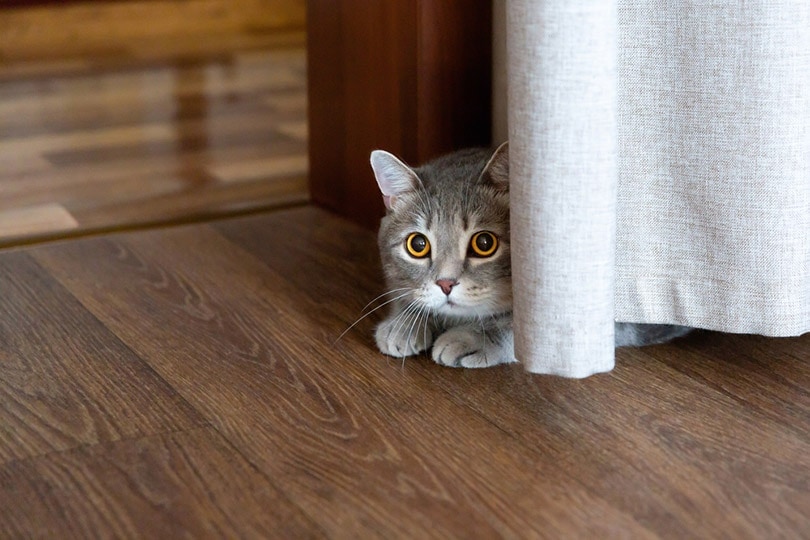
2. Territory Issues
Cats love to explore and find spots to retreat alone. If your cat feels like they can’t stake out any territory of their own or that they are competing with other cats for food, litter box space, or toys, they can become frustrated. Mounting is one way that they exhibit their frustration.
3. A New Cat
Mounting can be a sign of one cat trying to assert dominance over another. If you’ve recently added another cat to your household, the original cat may mount them as a sign of dominance.
Cats are considered socially mature between 2 and 4 years of age. Even kittens that got along as youngsters can start to exhibit social dominance cues as they get older. This is how they figure out who is “in charge.”
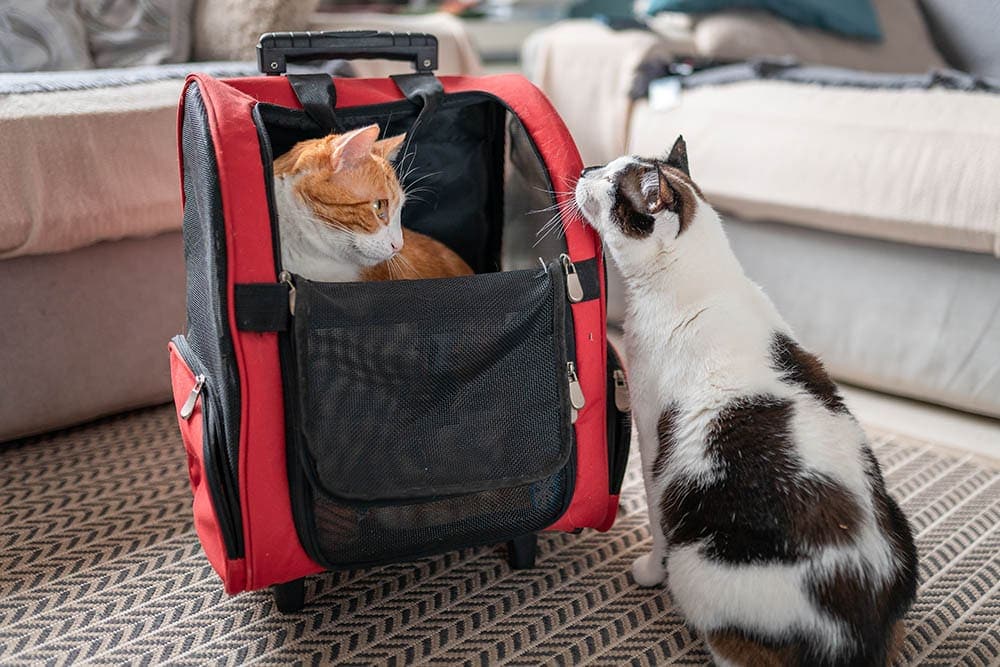
4. Attention-Seeking or Boredom
Bored cats will look for ways to release pent-up frustration and energy. Whether it’s because they don’t have enough stimulation in their environment or because they are trying to garner attention from their owner, it’s another reason that they may start mounting.
Medical Causes
5. Recent Neutering
If your male cat was only neutered within the last month or so and is still humping, you probably don’t have much to worry about. It takes male cats about 12 weeks for the hormones in their body to dissipate, so it’s completely normal for them to continue exhibiting mounting behavior right after surgery.
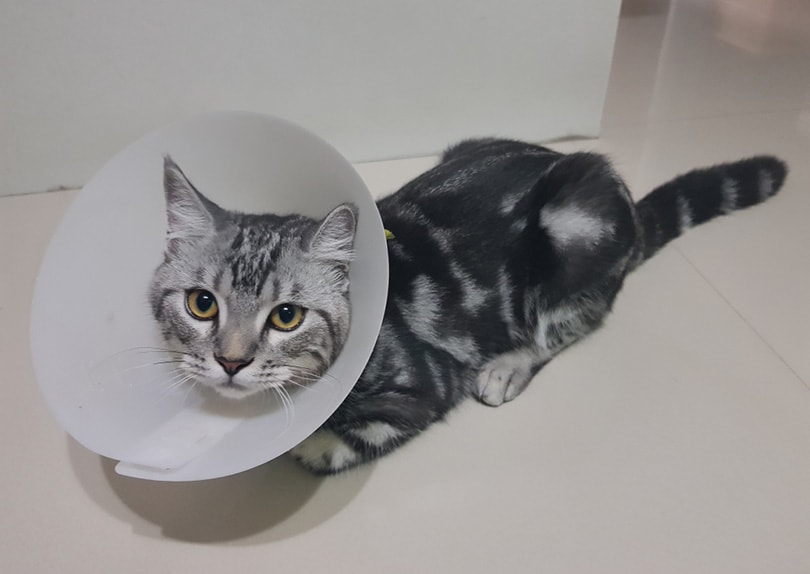
6. Late Neutering
Male cats that are neutered after 1 year of age can continue to mount throughout their lives because it is a learned behavior. This means that even long after your cat’s hormones have subsided, they might still mount because they feel like it.
7. Urinary Tract Infections
While it’s not the most common symptom of a urinary tract infection, it’s not unheard of for male cats to start humping when they have one. If your cat is mounting, as well as peeing outside of the litter box or peeing more frequently than normal, it might be time for a vet visit.
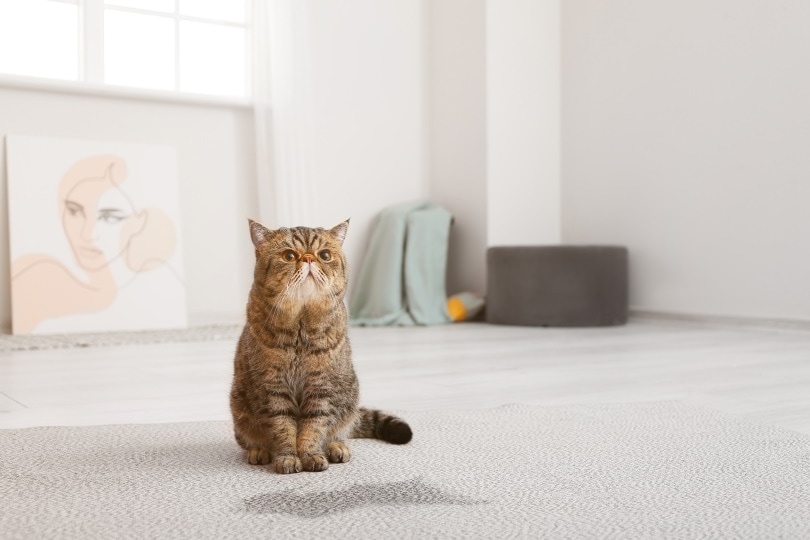
How to Stop Your Male Cat From Mounting
Now that you know what causes neutered male cats to mount, let’s take a look at how to stop the behavior. Not every method is going to work for every cat, and not every method is appropriate for every situation.
1. Reward Good Behavior
Punishing your cat will never help the situation. It increases their stress level and might end up causing more mounting behavior rather than less. Always train your cat with positive reinforcement and reward them, either with a treat or attention, when they are behaving appropriately.
2. Provide More Playtime
Spending quality time with your pet and ensuring that they get plenty of exercise will help burn off excess energy and satisfy their natural hunting instincts. Sometimes, cats need encouragement to play, so try using different toys to see which ones they like best.
After regular play sessions, you may find that your cat is tired and happy instead of bored and frustrated. This makes them more likely to have a nap rather than look for something to mount.
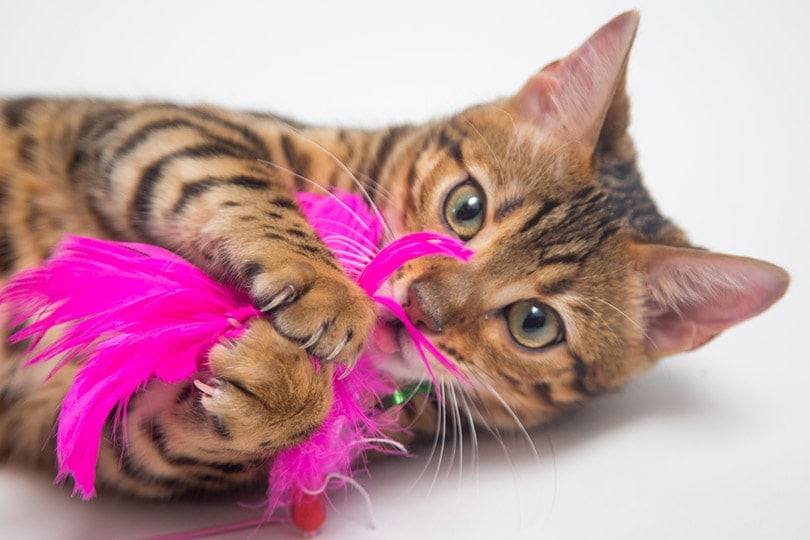
3. Increase (or Establish) Your Cat’s Territory
Indoor cats can benefit from having a large space to call their own.
- Add more vertical areas, giving your cat territory that goes upward.
- Add an outdoor cat enclosure. Don’t give your cat free-range outdoors, but an enclosed pen on a deck or in the yard will allow them the pleasure of being outside while remaining safe.
4. Add Another Litter Box
Make sure your cat’s litter box is kept clean and in a private area of your house. If you have multiple cats, make sure there are enough litter boxes. One for each cat plus one is a good rule to follow.
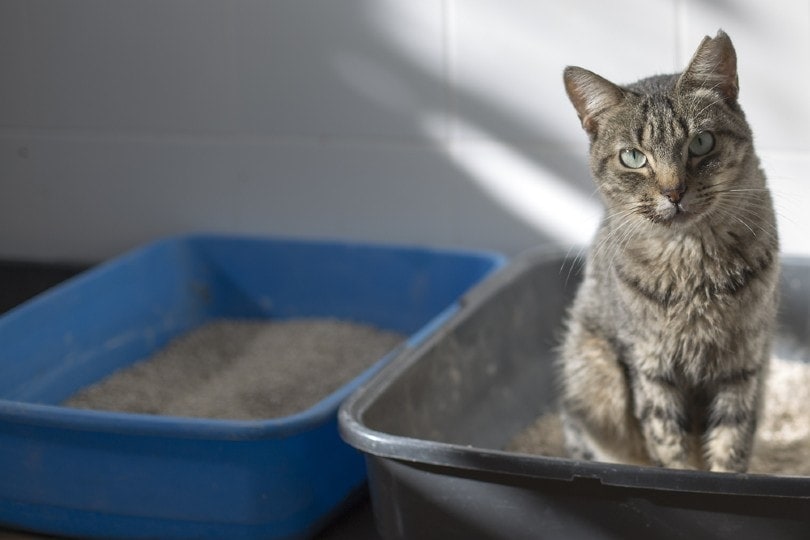
5. Reduce Stress Levels
Keeping your cat’s routine as consistent as possible will help them know what to expect and reduce their stress level. Make sure your cat has a safe place to retreat to when they want quiet, and ensure that they get plenty of attention. This is extra important if you’ve added a baby or another pet to the home. While it can be challenging, taking the time to ensure that your cat knows that they are still important to you can go a long way toward mitigating their stress.
If your cat’s anxiety is severe, talk to your veterinarian. In some cases, medication may be warranted.
6. Enrich the Environment
You can’t entertain your cat all the time, nor can you avoid leaving the house for periods of time. Making sure your cat has enough to do during these times is a crucial part of caring for your pet. Toys, scratching posts, and cat trees can help enrich your cat’s daily life by providing stimulation.
Placing a cat tree, chair, or bookcase next to the window so your kitty can look outside or even placing a bird feeder in your yard can provide a great distraction when they are bored. Even mobiles or colored strings that blow in the wind can work; anything that catches your cat’s attention will do.
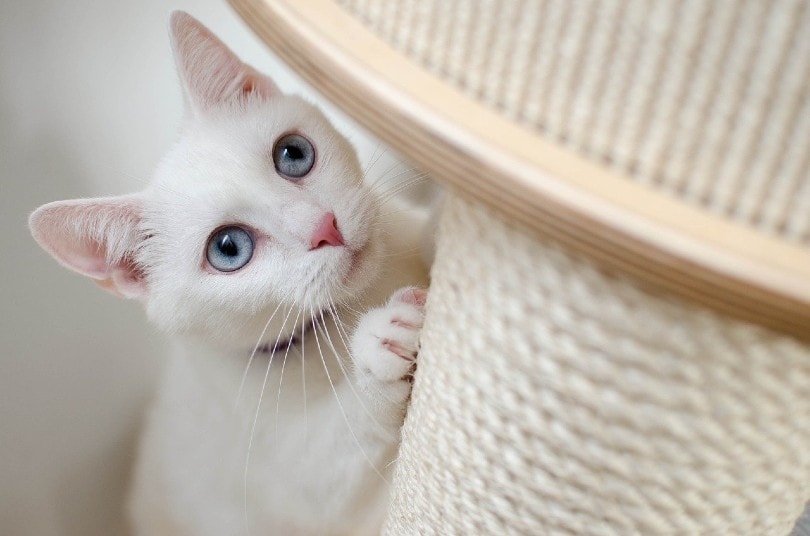
Final Thoughts
Mounting behavior in male cats can be a sign that something’s not quite right. If you suspect that a medical issue might be the cause, speak to your veterinarian to either diagnose or rule it out. Once your cat has a clean bill of health, you can start implementing these tips to stop your cat’s mounting behavior. Before you know it, your cat’s mounting will be a thing of the past.
Related Reads:
- How to Tell If a Cat is in Labor – 6 Signs to Look Out for!
- How to Tell if Your Cat Is Underweight – Is Your Cat Too Skinny?
Featured Image Credit: Attapol Yiemsiriwut, Shutterstock



